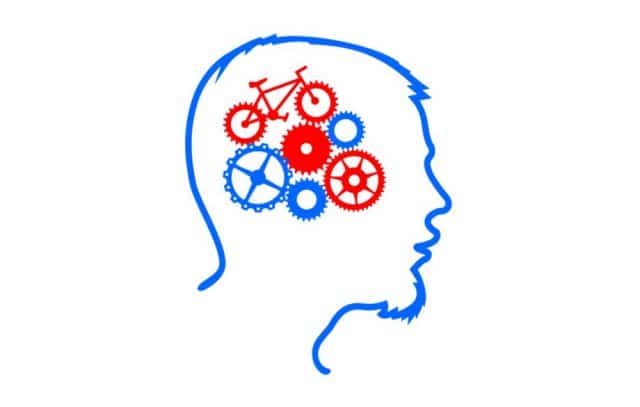“Positive thinking for the sake of positive thinking doesn’t work all by itself,” explains Julie Emmerman, PsyD, a clinical sport psychologist based in Boulder, Colorado, who has worked with dozens of professional and amateur cyclists, including a handful who have raced at the sport’s highest level. “It doesn’t work to just say, ‘I am great.’ It needs to be about recalling the training you have put into something, recalling why this is going to be a good experience. If you walk out of the house and everything is gloom and doom, you pick up on things and are skewed toward validating that inner experience. But if you have a positive attitude and mindset you will find things that reinforce that. So thinking that I am going to have a good ride today or I am going to have a great race automatically sets you up for seeking that which validates the thought.”Additionally, positive thinking is crucial because it helps you focus on the quality of your experience, not just the outcome. “Especially in bike racing you can’t only think about the outcome or the results,” continues Dr. Emmerman. “There is so much that can go wrong that’s not in your control, so just to think about and focus on the outcome sabotages the experience.”Like focusing the lens of a camera, mental focus lets you see things more clearly so that you can concentrate on what is important. But you must develop this skill in order to zero in on the right elements. Concentrating on your long-term cycling goal is good, but don’t forget about the short-term goals that get you there.
Indeed, the steps up the ladder toward your goal should be savored and valued. Proper focus is putting blinders on, but not so tightly that you miss what’s right in front of you. Visualising your goal and the process required to reach it prepares you for the expected—and unexpected—turns in the road.
“I tell people to use imagery that draws on all senses,” says Dr. Emmerman. “If someone is feeling anxiety about a race, I try to get them to conjure up all the senses of what they think the experience will be like. Picture yourself in the race, riding in a group, moving fast, and then ask do you feel like you can do that. Usually if the person has put the training in, then they start to see themselves doing well, and that reduces anxiety.”
Dr. Emmerman views anxiety as a mass of energy, and we as humans (and cyclists) have a lot of control over how that mass is defined. If you do nothing, that mass can get out of control and cause panic. “But if you can use things like imagery, you can direct and form it so there is no room for free-floating anxiety. You have a plan,” she says.
Short-term focus also means being able to clear your mind of everything extraneous so that you can concentrate on the task at hand. For instance, think about finishing the last 8km of the 100km training ride you’re on instead of fretting about the chores you have to do when you get home. Indeed, successful short-term focus means thinking only about cycling at crucial moments. It allows you to be completely in the moment at that moment, and no place else.
Picture yourself riding in a group at a brisk pace, everyone close together. Imagine that some riders are struggling to keep a uniform speed and ride a straight line. This is no time to have your mind on the argument you just had with your spouse or to contemplate the latest crisis at work. In the most intense moments of cycling, the likelihood of making a mistake increases if you don’t have complete focus. You may not even notice that your mind wanders at crucial times. On your next few rides, pay attention to how your mental state relates to various situations.
Studies have compared endurance athletes who zero in during races with those who zone out. Riders who zero in, who focus on the task at hand, which is called association, perform better. Disassociation, zoning out, is less productive because you take yourself out of the task rather than commit to it.
That doesn’t mean you have to concentrate solely on cycling every minute of every ride. It’s easy and natural to let your mind wander as you ride. In fact, it’s often a healthy thing to do because cycling is such a good mental detox for stress. Let the warmup period of a ride be the time to clear your head. Then, once you’re warm and ready, concentrate purely on the ride. The more concentrated your focus is, the more concentrated your enjoyment of the ride will be.
To train your concentration on specific aspects of cycling, do mental intervals. Focus on your breathing for 1 minute, then focus on your pedaling for 1 minute. As with any interval workout, rest between concentration periods.


